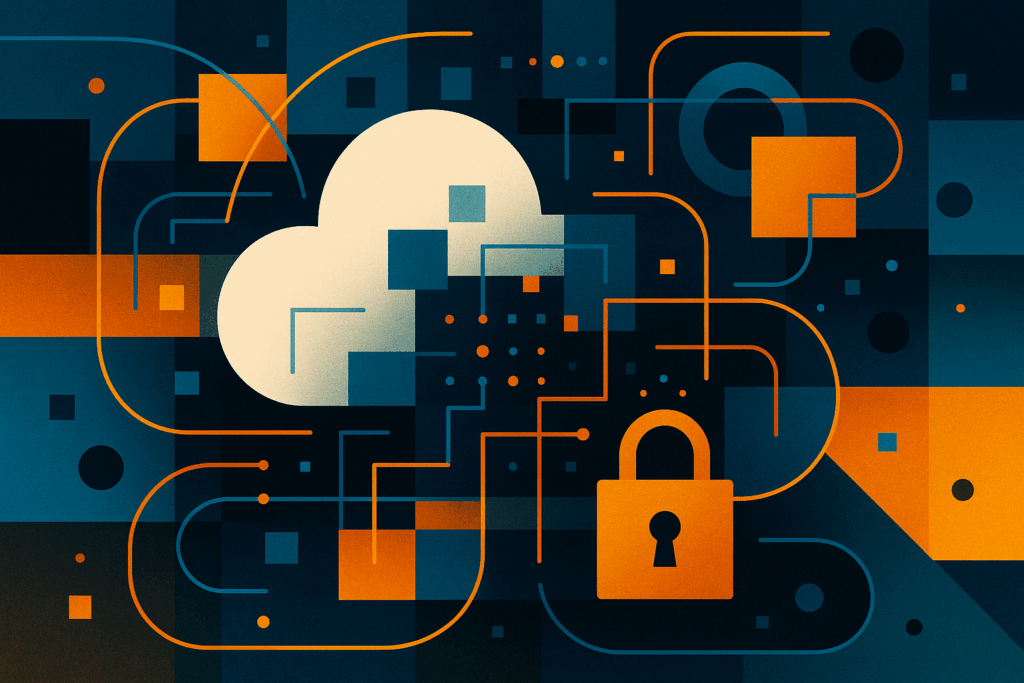Many businesses across the globe are increasingly adopting cloud storage thanks to its reduced IT overhead, accessibility, and scalability. Nonetheless, the security of cloud storage has raised a lot of concern for businesses despite its convenience and provision of employees with access to your company’s data at any given time, place, and device.
Cloud storage offers an excellent cost-effective option to costly, locally applied hardware. Nevertheless, carrying out your affairs in the cloud can put your confidential files and sensitive data at risk of exposure, as cloud storage data does not fall within the boundaries of the safeguards that you would have to apply to keep it safe on-site.
Additionally, the dawn of the Internet of Things and connected office technology has increasingly made businesses more dependent on cloud technology irrespective of the security risks involved. With more corporate gadgets becoming linked to the Internet, the more the likelihood of unplanned compromise or leakage.
Using free file sharing and cloud storage services that lack approval from the IT team is possibly the principal challenge affecting cloud storage security. Intentionally or not, your workers can pose a risk to your company’s sensitive data without the approval or knowledge of your IT team.
Luckily, the following are ten solutions to assist you in improving your cloud storage security in a bid to maintain the safety of your data in the cloud.
Security Solutions for Protecting Data in the Cloud
Keep your Sensitive Company Data Away from the Cloud
All cloud storage services are not 100 percent secure. Since companies that rely on cloud storage services have a higher likelihood of facing security problems compared to organizations that store their data locally, then you ought not to store sensitive company data in a virtual service or the cloud.
Password Management
Your IT team has the role of managing numerous employee accounts, which makes it challenging to come up with a security framework that is 100 percent secure. Nevertheless, practical tools for password management purposes can assist you in creating and managing strong passwords for all the users available in your network. Reset all your passwords consistently whenever an employee leaves the company.
Make sure that your passwords are not easy to remember or guess. In case you must track some passwords, consider dealing with software services that can handle both password storage and creation. What’s more, ensure that you can recall all your master passwords but avoid keeping any of their record on your PC.
Leverage Multi-Factor Authentication
With the risk of misplacing, hacking, or compromising passwords, using multi-factor authentication as an extra layer of security is safer. Away from your passcode and username, multi-factor authentication comes with a third aspect. For identity authentication, this factor can be a unique code, voice analysis, or fingerprint, which you are the only one who can access.
Encryption
Make sure that you encrypt your company data at rest, in transit, and at the source. However, encrypting it at source, and managing the keys yourself is the safest solution. Even though data in transit is usually secure due to the emergence of SDN featuring network virtualization, ensure that you always utilize end-to-end encryption to remain safe. Also, ensure that SSL terminates within the network of your cloud service provider.
When it comes to data at rest, encryption makes sure that you’re compliant with regulatory requirements, contractual obligations, and privacy policies for dealing with sensitive data. Data held in cloud storage disks ought to be encrypted. Additionally, the encryption keys should be encrypted with master keys that are regularly rotated. Ensure that your CSP offers field-level encryption, whereby you can spell out the fields that you need encrypted, for example, credit card number, CFP, and SSN, among others.
Use of Ongoing and Thorough Vulnerability Testing
Ensure that your CSP employs best-in-class incident response and vulnerability tools. Solutions drawn from such response tools ought to support completely automated security reviews not only for testing system vulnerabilities but also reducing the duration taken in-between important security audits. Scans can either be carried out when planned or upon demand.
Leverage User-Level Data Security for Managing Access
Your cloud service ought to deliver role-based access control aspects that allow you to put in place data editing permissions and user-specific access. The system ought to enable fine-grained, enforced, access control-based separation of roles within your company to assist in maintaining compliance with both internal and external data security standards like COBIT and HITRUST frameworks.
Put Emphasis on Rigorous Compliance Certifications
Two of the top vital industry certifications include:
- SOC Type II or 3: Useful in internal risk management tasks, vendor management programs, and regulatory compliance oversight. Both certifications ascertain the fact that a software service is mainly designed and strictly managed to maintain top-level security.
- PCI DSS: SaaS providers must go through comprehensive audits to ensure that all sensitive data is processed, stored, and transmitted in a secure and protected way to attain this certification. This security standard comprises of requirements for network architecture, software design, procedures, policies, and security management, among other vital protective actions.
Utilize a Specific Data Deletion Policy
You ought to have an enforced and clear policy that governs the deletion of data. Hence, when the client’s data retention duration comes to an end, all their data ought to be deleted as stipulated in the contract. Aside from freeing up a considerable amount of storage space, such action prevents unpermitted access to your files or information.
Take Advantage of Data Backups
Bear in mind that storing your data in the cloud does not mean you have a backup. Hence, in case your data is eliminated from the cloud, it also disappears in the local machine. While booting, many cloud storage services do not provide excellent revision histories, particularly for synchronized records. Hence, to safeguard against the loss of data, you must utilize online backup. Make sure that you leverage numerous data backups, especially the offsite one. The good thing about online backup services is that they can continuously update your organization’s data together with granular revisions. Moreover, the data is then held and encrypted in a third party-owned or operated data center.
Employee Sensitization and Education
Aside from putting in place strict security solutions to safeguard your data from unpermitted access and implement cloud security policies, educating your workers on the risk associated with the adoption of cloud is vital. Furthermore, you need to educate them on the importance of safeguarding their endpoint devices and passwords.
Adopting & Staying Secure
As businesses continue to adopt cloud initiatives, the security of cloud storage is rapidly becoming a key priority, particularly in IT architecture and information security plans. Enterprises are beginning to realize the importance of protecting their data while assisting the employees in benefiting from cloud performance and flexibility.
Cloud storage is a responsibility that should be shared between you and your CSP. Thus, your CSP oversees putting in place baseline safeguards, including access control, encryption, and authentication of the data they process as well as their platforms. Moving forward, you can boost such protections with additional security strategies not only to limit unauthorized access to your sensitive records but also improve cloud data protection.
- The Role PCI-DSS Plays in Security - January 21, 2020
- Your Quick Guide to SOC 1, 2 and 3 - December 13, 2019
- Using a Risk Assessment for a SaaS Company - November 24, 2019



